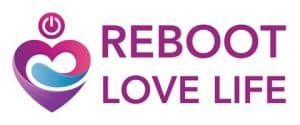Humans seem to enjoy kissing across the globe. From an intimate make-out kiss from a partner to affectionate kisses from our mothers, or even using kisses as a social greeting, can make us wonder, “What makes us want to kiss so much?”
The existing data gives a pretty strong case for the fact that kissing may be a natural act. By observing the world around us, we know that kissing is an instinct displayed by children, people from multiple cultures, and some animals too! Most of us have felt the urge to kiss at least once.
While science discovers the truth, let us look at all the points that make us believe kissing is more of a natural act than a learned one.
Kissing – Natural Or Learned?
1. Prevalent Across the Globe
The very reason that this query arises in our mind is that we see it all around us.
While it’s easy to exchange and adopt different cultures in a globally connected world, it wasn’t so easy back in the ancient era.
Despite being geographically divided without contact, a vast majority of cultures and tribes practice some type of kissing as a means of showing affection or greeting another.
Cultures that don’t practice kissing through lips engage in other forms of intimate touches that replicate kissing, such as rubbing noses or an “Eskimo kiss”.
Do read my article on Why Do We Kiss on the Lips for more interesting information on the topic.
2. Revival of Kissing as Culture
Despite kissing coming naturally to many people, there was a time when several cultures repressed the act. In some of them, it was even considered a punishable act.
Due to cultural repression, the act of kissing had faded, disappeared, or been hidden in different parts of the globe.
However, that did not change much.
The fact that kissing kept resurfacing in cultures in different generations, irrespective of what they were taught, implies that kissing is an inherent desire and cannot be suppressed entirely.
Abandoned tribes away from civilization that had no means to pick up such cultural changes also adopted kissing as a culture eventually.

3. Exchanging Pheromones
We don’t kiss for absolutely no reason. It is expected to hold biological significance in mating, which means that there’s a good chance kissing is deeply ingrained in our mental wiring.
Being that close to a potential mating partner allows for the exchange of pheromones and technically “sniffing” out whether a partner would make a good mating partner or not.
In short, pheromones are a hidden form of communication allowing you to take in data about a person you won’t necessarily detect with words or body language.
Irrespective of the strength of attraction, kissing, for the first time, has often changed people’s perception and decision-making abilities when it comes to choosing a partner.
4. Behavior in Children
If kissing was learned, it should take some time for humans to adapt to it.
However, the simple desire and the act of reaching out for skin-to-skin contact through the lips is actively seen in newborns, toddlers, and children as they grow – whether they have or have not witnessed their parents kiss each other.
If newborns that are not cognitively developed to have been taught how to kiss can get it, or kids that have never been exposed to kissing express kissing-like behaviors – it’s a major sign that kissing is a natural instinct in humans.
Some experts theorize that kissing from childhood to adulthood is picked up from the act of “breastfeeding” and our psychological associations to emotional proximity as shared with our mothers.

5. Feeling Drawn to It
If you’ve been around someone you are attracted to, you must have felt this sudden urge to get close to them. Find yourself close enough, and you have the urge to kiss them.
Teenagers, whether exposed to kissing as a mode of affection or not, start feeling naturally drawn to kiss people that they are attracted to.
This carries into adulthood, just that we get a little more used to that rush.
Anyone who has felt that urge knows that it’s often not in their control. They may have the ability to choose between acting out on it or not, but they most certainly can’t help being naturally drawn to it.
6. It Feels Good
How can something that feels so good ever be wrong?
Outside the question of morality, anyone who has kissed before knows how amazing it can feel. It can feel so good that people get hooked on it and can crave it multiple times a day.
Not everything that feels good in the short term may be great for your system in the long term – but that doesn’t mean your brain’s reward function is lying to you.
Feeling great about something is often a good sign that you’re doing the right thing.
Feeling good while kissing can simply be like your brain patting your back for finding a partner to mate with – who could tell?

7. Turns You On
The many nerve endings that exist on the lip are one of the key reasons why kissing can be so arousing.
Like any other sensual activity, people can naturally turn to kiss as a means to arouse pleasure – whether taught so or not.
Our bodies can often do that talking, and when seeking arousal, it is common for people to move with their mouths.
Thus, kissing, whether on the lips or elsewhere, becomes a natural path to arousal to move ahead with mating.
8. Makes You Healthier
It can be confusing to say that kissing is natural because it’s healthier. As paradoxical as these arguments can be, our natural state is often our healthiest state.
Kissing not only aids the act of mating but also makes partners and their relationships healthier. Happier partners raise healthy children.
It also boosts immunity, keeps your mouth healthy, and can lower blood pressure.
As a result, kissing presents a strong case for being part of the human instinct towards our natural tendencies to seek better health and partnerships.

9. Affects Your Behavior
Sometimes, the act of kissing can control you more than you control it. Rather than being just another thing you do, it often ends up falling into a larger scheme of attraction.
You feel drawn to kiss someone you are attracted to, but you can stop being attracted to someone once you kiss them. Kissing isn’t only an expression of attraction.
Kissing can affect how you feel and react. It can get you to be attracted or unattracted to someone.
Thus, kissing isn’t just something you do because you saw people do it, but because it has more purpose within your body.
10. Animals Kiss Too!
What better way to know whether kissing is natural in humans or not than to look at the rest of the world? While not all animals, some advanced mammals have been known to kiss too!
It isn’t just a cultural thing but prevails across a certain set of mammals.
Our close primates seem to kiss just the way we do, while other animals, such as dogs and elephants, show kissing-like behaviors through sniffing, licking, or engaging in contact through their mouth.
It may not be certain, but it for sure builds a strong case!
Conclusion
Natural or Learned – Kissing has so deeply been ingrained into our culture that it is a part of our psychology. The frequency and type of kisses can greatly impact the health of your relationship.
It has become an integral part of our lives – a representation of affection.
Whether we can go just as well without kissing or not – you might as well enjoy it while it’s there. But that does not imply that you should rush it or feel pressured to kiss a partner or anyone else.
Kissing is great only when the desire comes to you naturally and not as an obligation.
